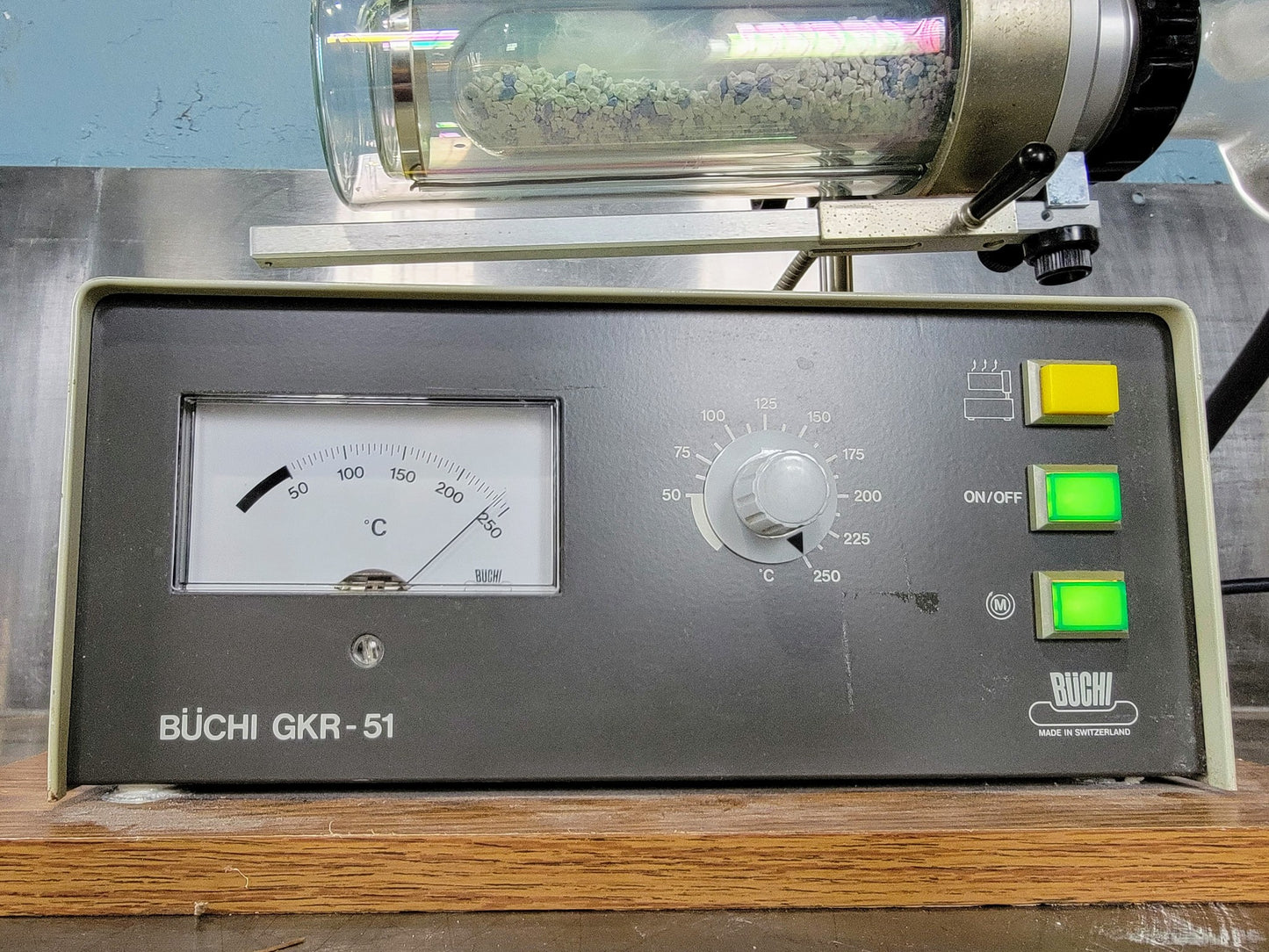BUCHI GKR-51 MICRO DISTILLATION TRITATION DRY OVEN OPERATIONAL MANUAL WATCHVIDEO
BUCHI GKR-51 MICRO DISTILLATION TRITATION DRY OVEN OPERATIONAL MANUAL WATCHVIDEO
This listing is for a Great Operational Condition BUCHI GKR-51 MICRO DISTILLATION TRITATION DRY OVEN & OPERATIONAL MANUAL AS CAN BE WATCHED IN THE VIDEO and also seen in the pictures.
FEEL FREE TO WATCH A VIDEO OF THIS UNIT WORKING BY CLICKING THE FOLLOWING VIDEO: https://www.youtube.com/watch?v=orMyxhHvFxE
This unit came from a Federal University has been fully Tested, is working Perfectly and that is why we offer a 90-DAY-WARRANTY!!!
Information below in Italics was taken from the WEB:
Buchi GKR-51 Titration Drying Oven / GLASS TUBE FURNACE BUCHI GKR 51/BALL TUBE FURNACE FOR MICRO DISTILLATION
Dimensions: 260 mm x 140 mm x 220 mm (without drying tube)
Oven Chamber: 50 mm diameter x 200 mm
Drying Tube: 43 mm diameter x 210 mm (usable space)
Temperature Range: 30 °C to 300 °C, infinitely variable
Temperature Regulation: electronic, zero crossing
Temperature accuracy: ± 10 °C in the middle of the oven
Buchi GKR Rotation Glass Drying Oven. Mdl. GKR-51. Sn. 1231054. 350 Watt, 110V, 50/60 Hz. With rotary valve, Mdl GKR-3. Powers on, with cord.
Features:
This glass tube oven consists essentially of two concentric tubes of borosilicate glass mounted in the holder. The heating is accomplished by a totally transparent electrically conducting semiconductor layer vaporized on to the exterior of the glass tube
Specifications:
Temp range: 30 - 250 C +/- 10 degrees accuracy
Turns ball: 15-18RPM/ 110-117V/220-240V
Operational and display elements
a Unit sockets with main fuses
b Main power switch
c Digital display showing the current temperature
d Multifunction botton for setting the desired oven
temperaturer
e Pilot lamp, illuminated when heating is turned on
f Lever used to open the iris diaphragm
g Glass ball cooling apparatus
h Holder for the save contact of the furnace
i Start
j Stop
k Lever of the adjustment of the inclination of the furnace
angel
5.3.2 Drying
The glass oven can also be used to dry solid substances.
Unlike permanently installed drying cabinets, the drying oven
only has to heat up a small volume. It requires less energy,
reaches the desired temperature more quickly, and thereby
reduces the time for drying. Moreover, if used as a vacuum
oven, it has a significantly tighter seal than a drying cabinet
and can therefore maintain a better vacuum. There are three
methods used for drying direct drying, indirect drying, and
rotary drying. The drying accessory is used for direct and
indirect drying, the rotary flask for rotary drying.
Stock # 222303
Couldn't load pickup availability
Out of stock
View full details



































